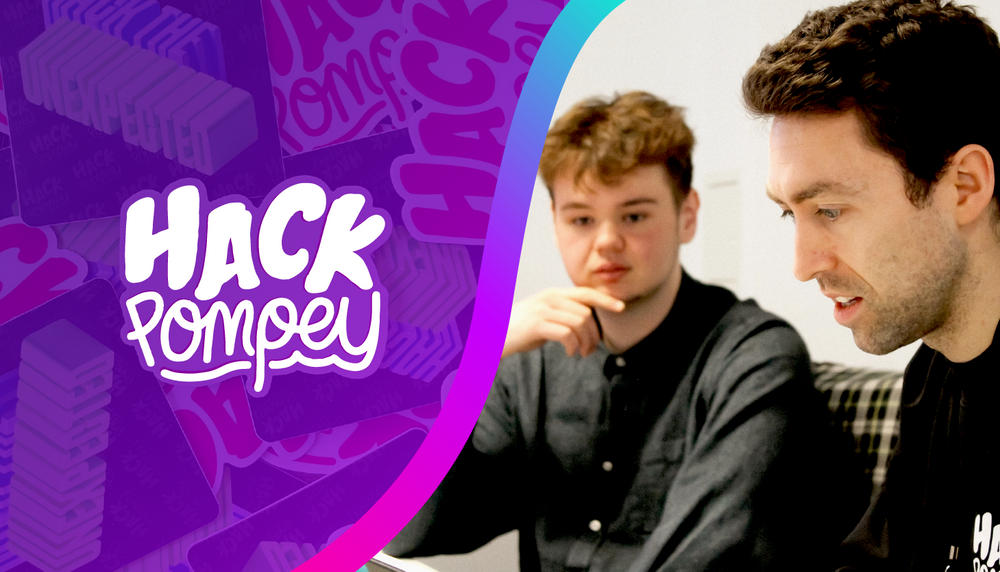
Loadbalancer.org was proud sponsor and participant at the south coast’s biggest hackathon, held at the University of Portsmouth.
Very occasionally, Loadbalancer lets me out into the real world. Madness, I know. And the break from the office to participate in this local hackathon was just what the doctor ordered.
While it was a blast, as always, there were also some wider, life lessons I was reminded of...
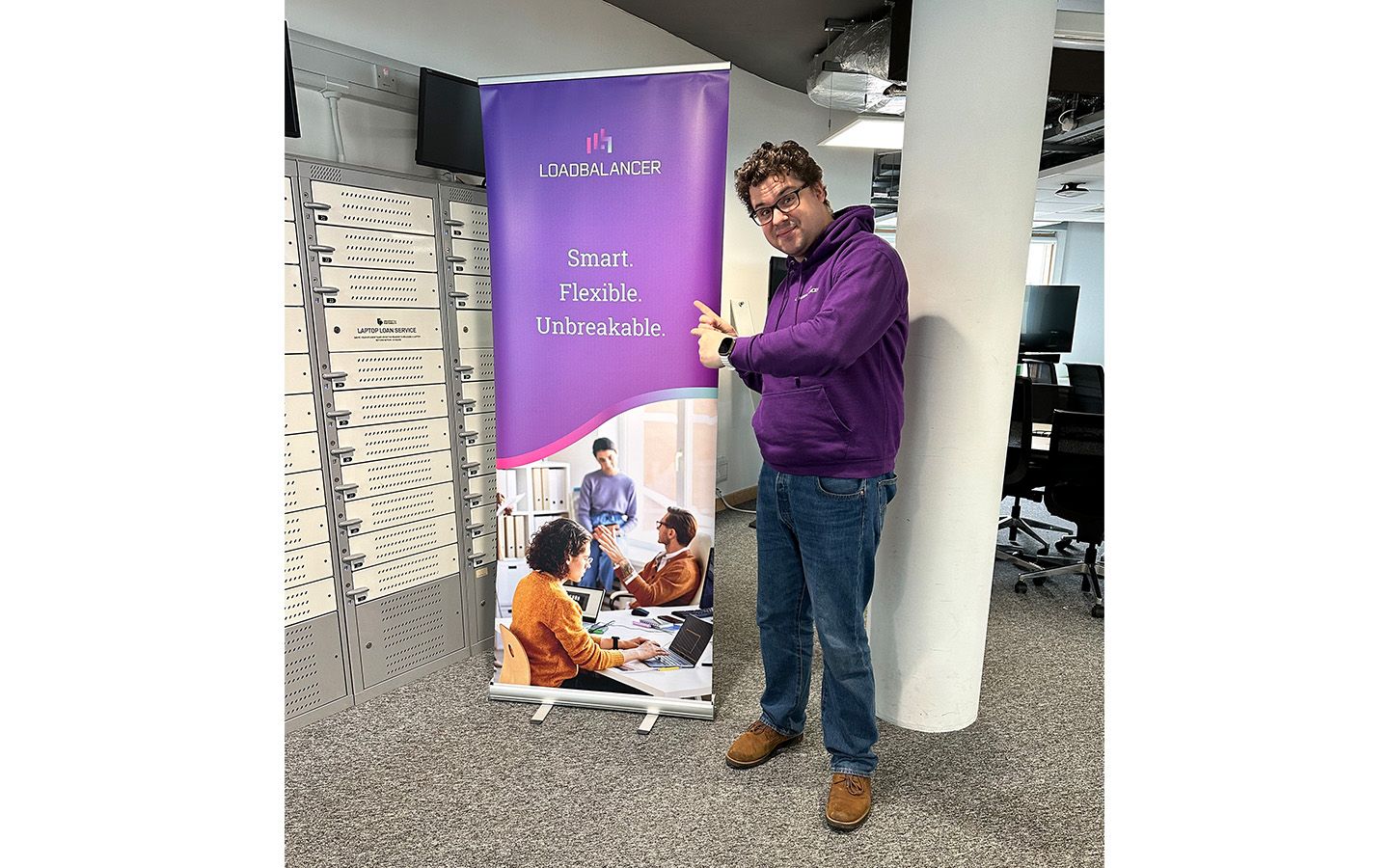
Loadbalancer.org loves open-box thinking
Loadbalancer.org was a proud sponsor of Hack Pompey 2023.
Why? Because we very much take an agile approach to Development at Loadbalancer, and the joy of a hackathon is that this microhabitat similarly encourages people to innovate in a creative, no-holes-barred way.
As a company that utilizes open source software in our products, Loadbalancer also feels it only makes sense that we give back to the community — whether that's by taking part in events like these, or contributing directly to various open-source projects.
Hack Pompey
Hack Pompey is a Portsmouth-based social hack event for students from the University of Portsmouth who want to make, learn, and meet new people. This year's brief was to "Hack the Unexpected", which I and the rest of the Loadbalancer.org dream team also took on (a big shout out here to my marvelous compadres, Nick Turnbull, and Emma Rayfield).
Here we are mid-flow:
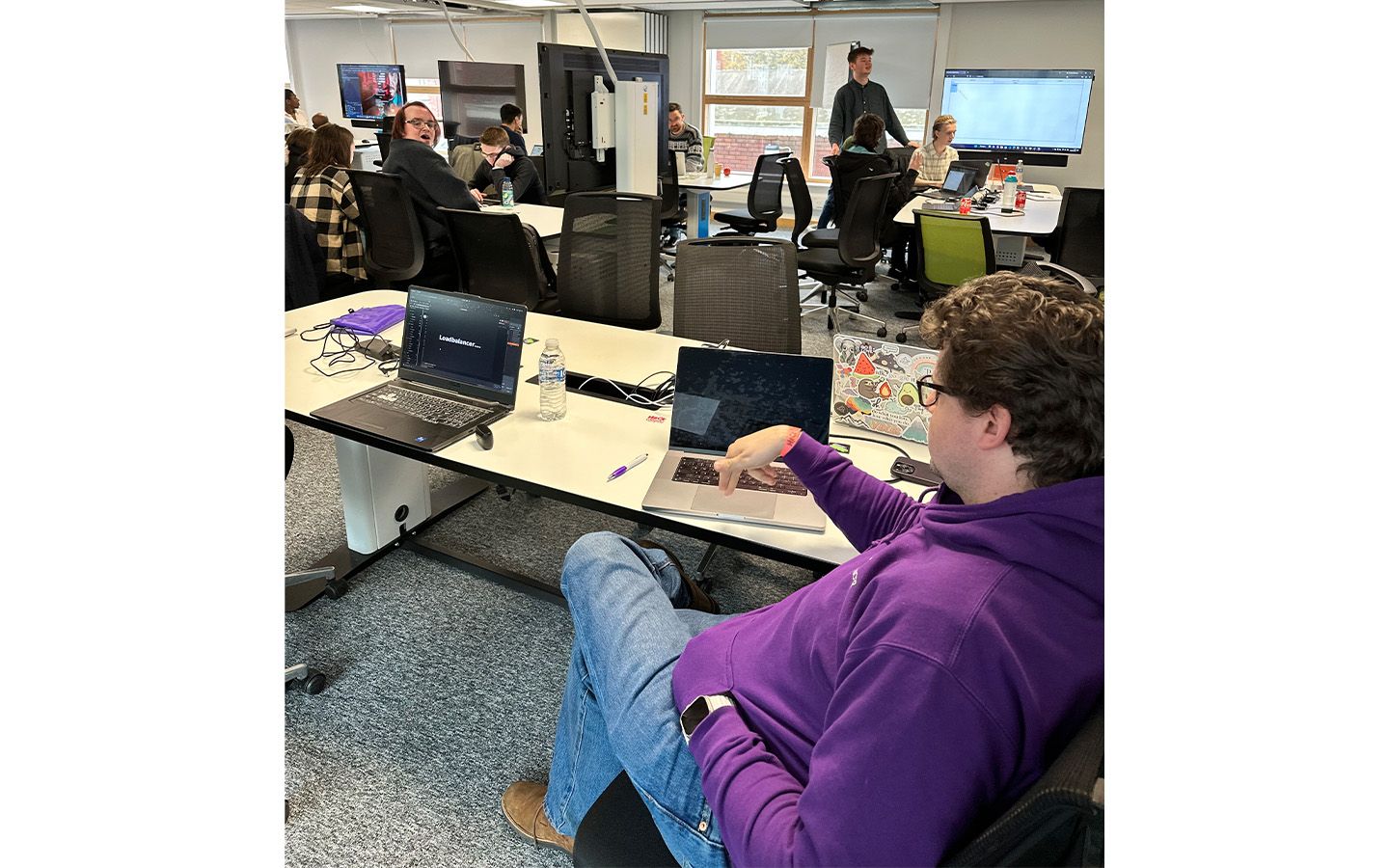
Our app: 3 Deep Breaths
Our team interpreted the "unexpected" part of the brief as an unexpected event or situation. Having decided this, we then set about developing our own app, putting Nick Turnbull on backend, myself on frontend, and Emma Rayfield on Design.
What we did:
- First, we created a knowledge base and resulting set of processes to help our imagined app user overcome their unexpected event e.g. they'd lost their luggage.
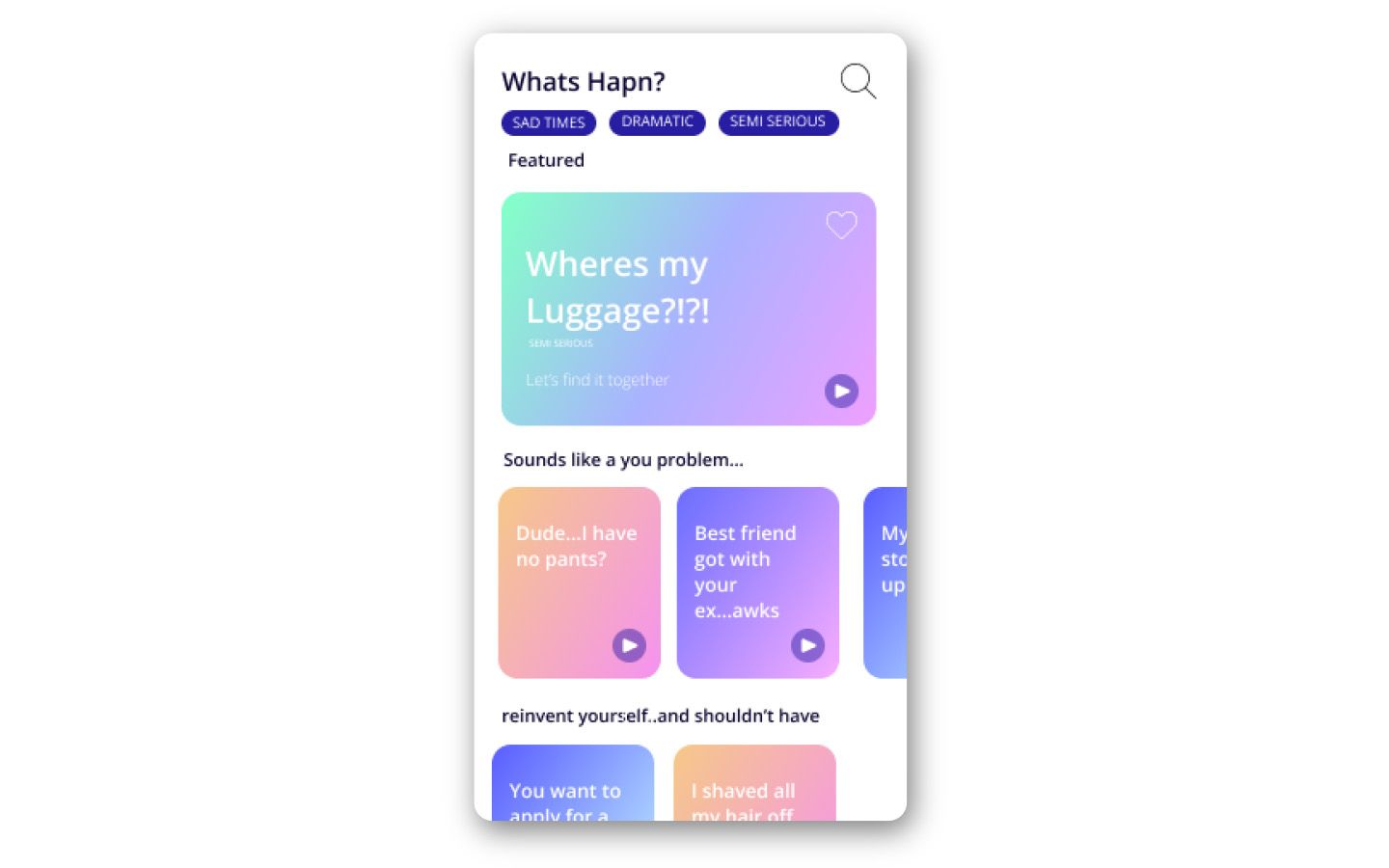
- Nick created a backend JSON doc, setting out all the possible scenarios and conditions that would take the user through, step-by-step, to the solution for their given problem.
- In this way, our event-driven backend was able to respond dynamically by adding conditions and scenarios on the fly, utilizing a RESTful API.
- Meanwhile, our Design guru, Emma, made it look like something to behold:
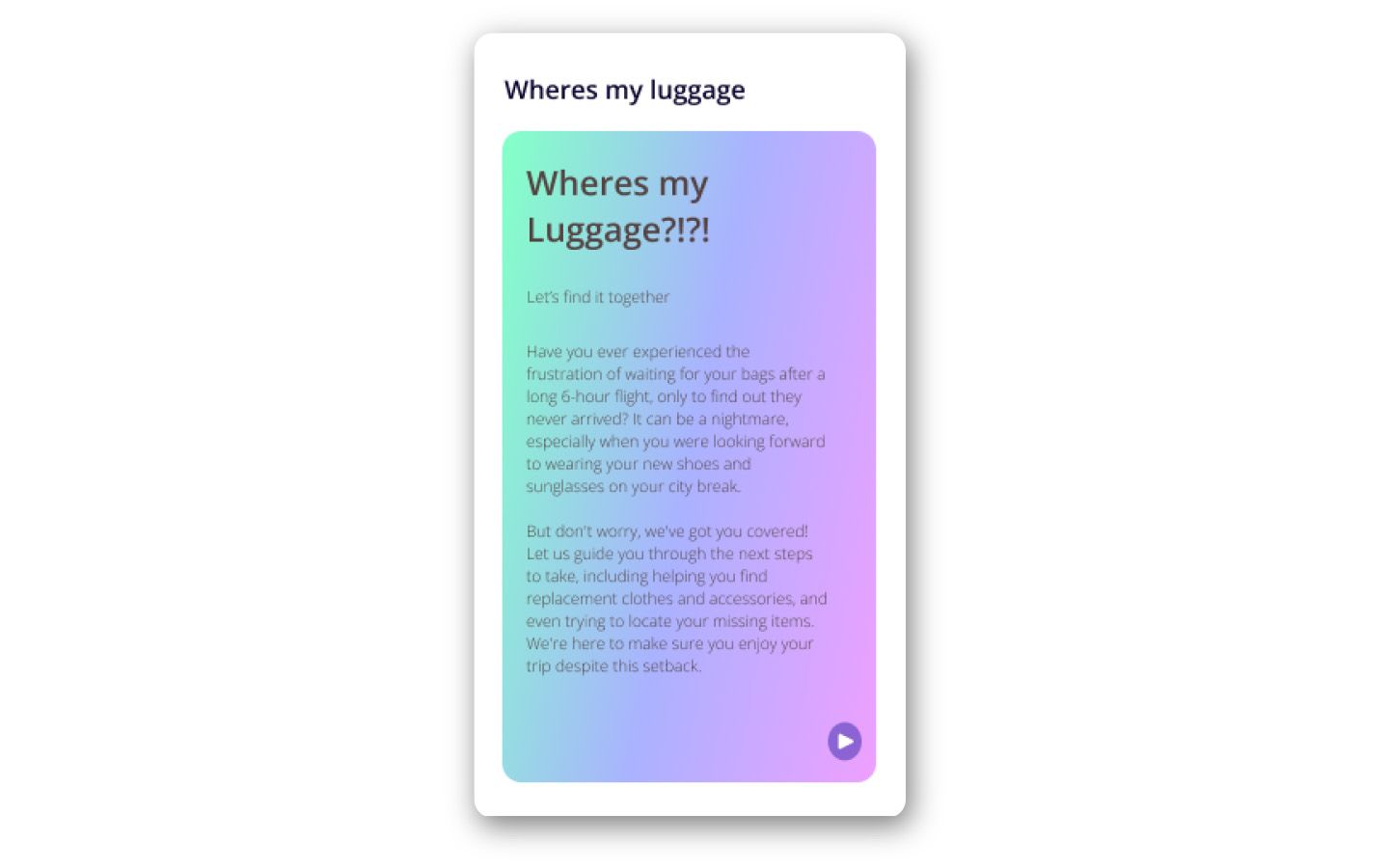
- Finally, we came up with a "Get more help" button so if the app was unable to help our imagined user with their unexpected situation, this button would connect them to ChatGPT, where they could get a more detailed response.
And what did we name our creation? "3 Deep Breaths".
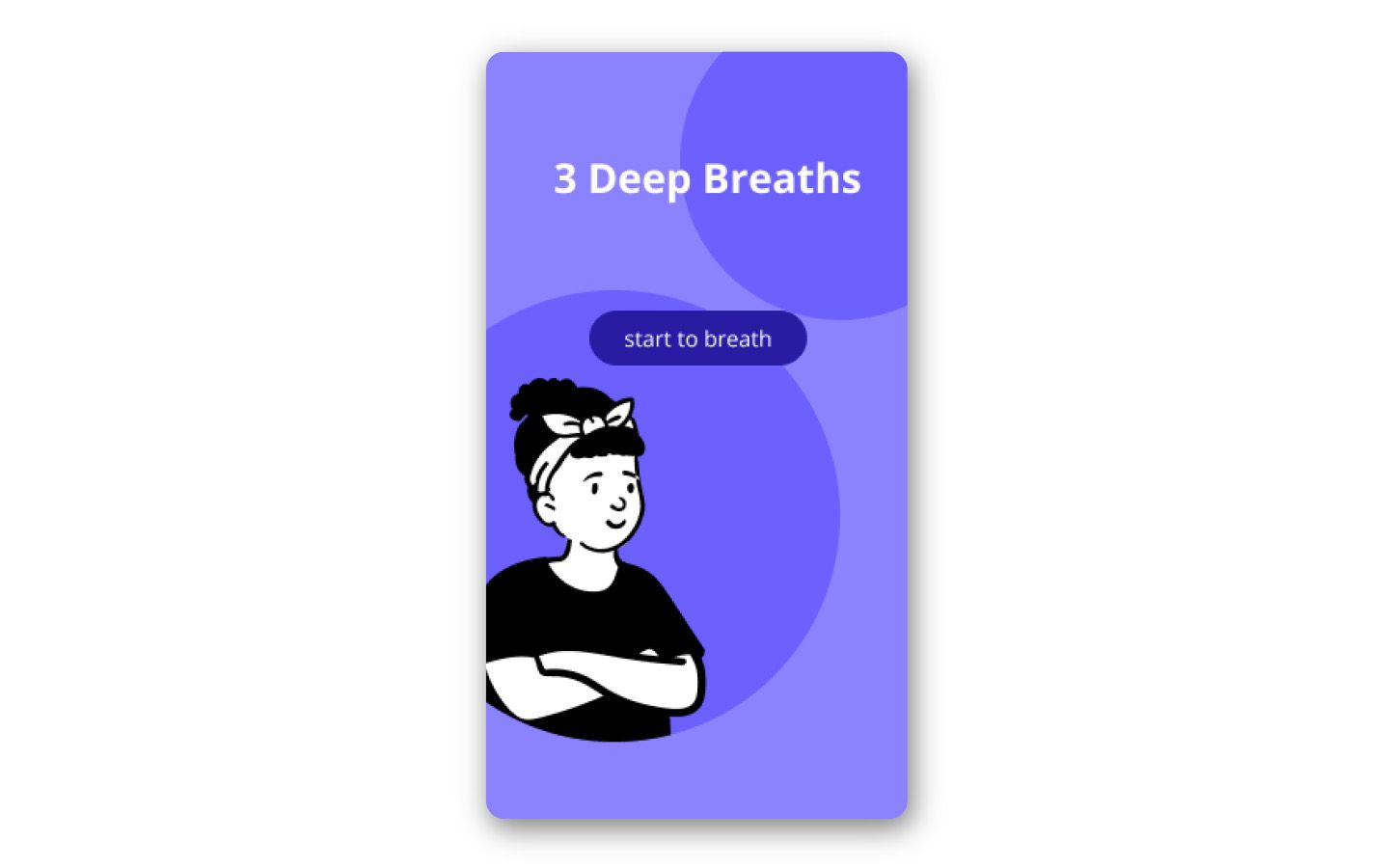
Not bad for a few hours work, even if I do say so myself.
Vastly different approaches
What I always find so interesting about these sorts of events is the variety of approaches to the same brief. And this year was no exception.
- Some teams brought a pre-made idea that they then molded to the brief.
- Others came up with the most complex solution they could.
- While our approach was to make an app that fitted the brief, and no more.
And this is how it works in business too. Take our industry, the Application Delivery Controller (ADC) market, for example...
Although software might be developed by two companies for the same purpose, no two products are ever the same. Case in point:
- One of our competitors provides an off-the-shelf solution.
- Another offers a high-end solution.
- While we, Loadbalancer, tailor our software to meet our customer's individual needs.
And so I was reminded during the hackathon of this basic premise of economics - that people will pay for things that give them the most use. One solution is not necessarily better than another. But one is likely to be a better fit for a particular brief.
